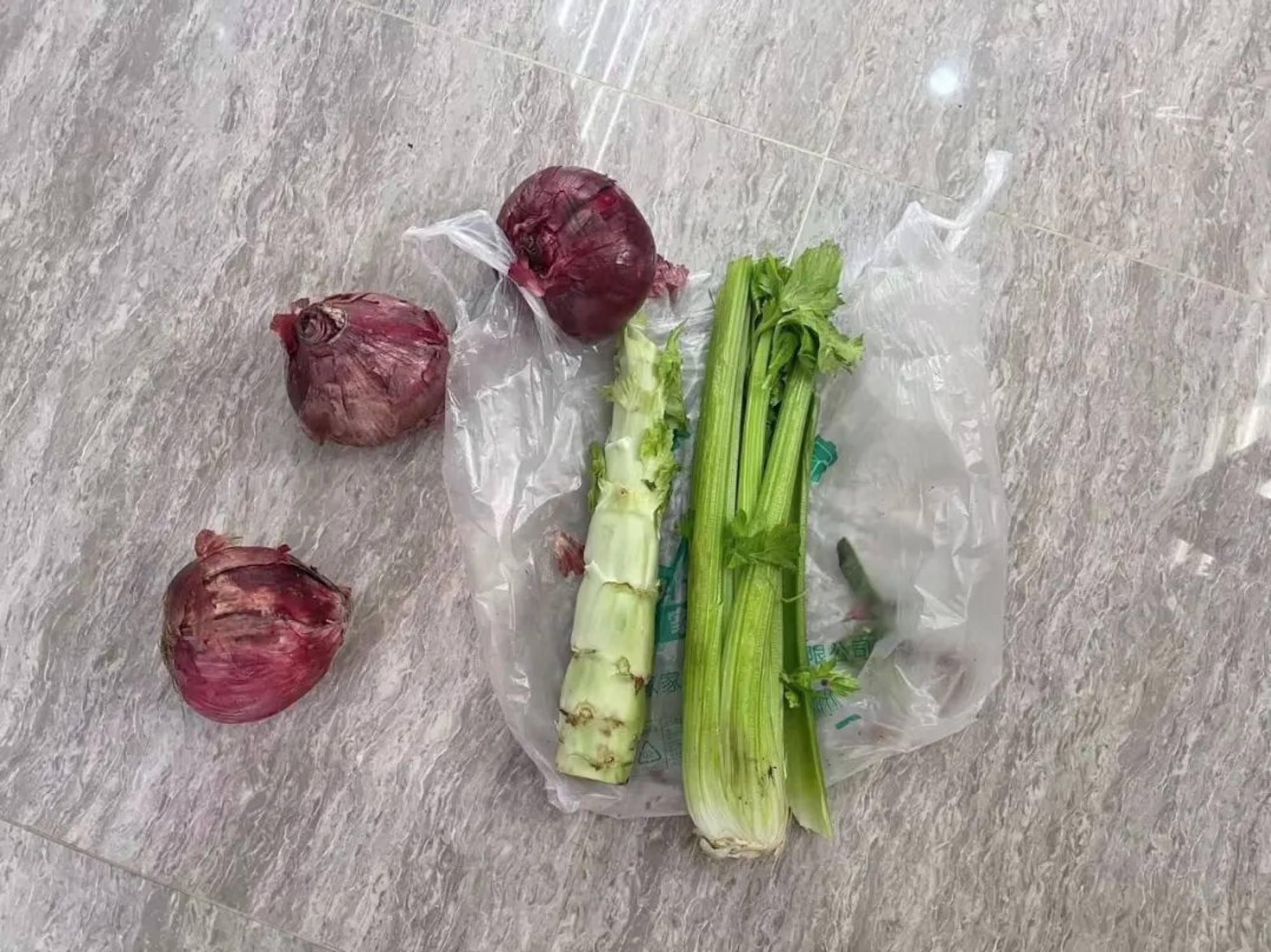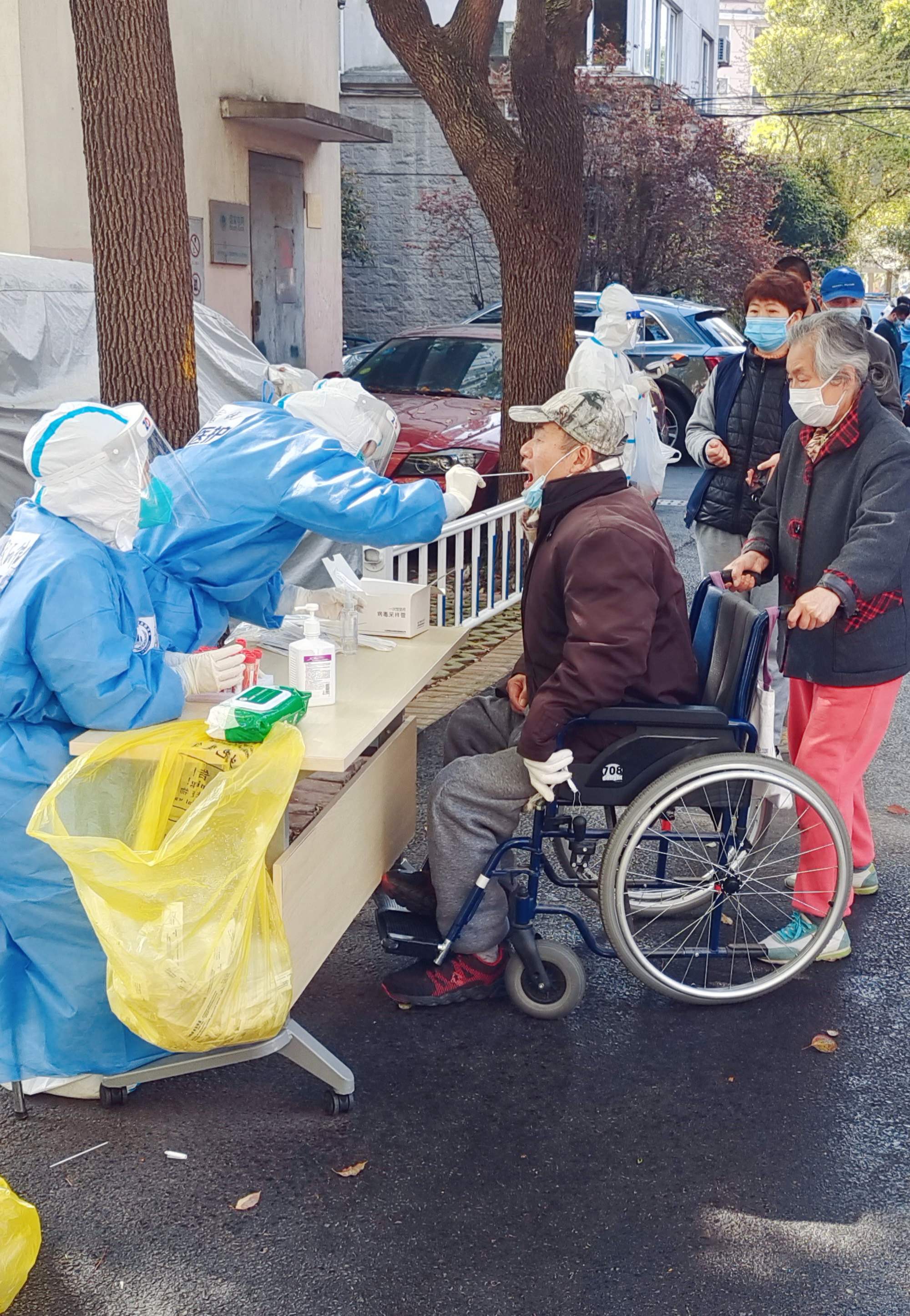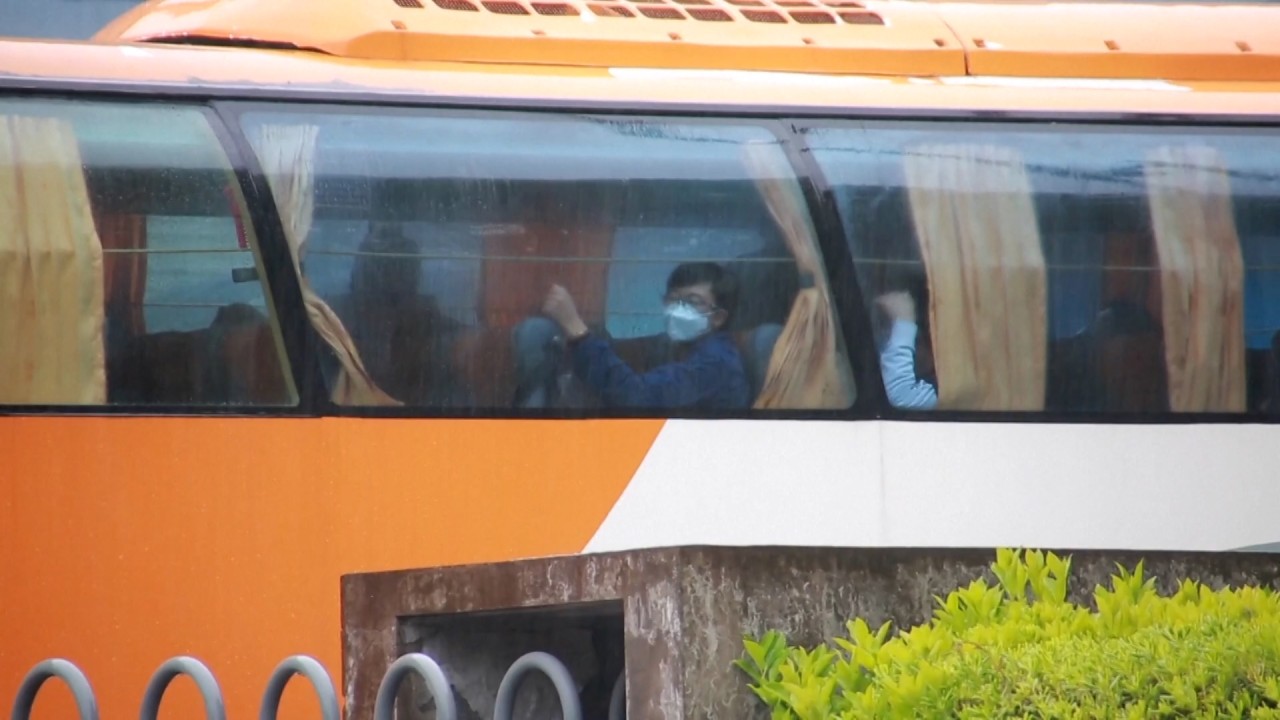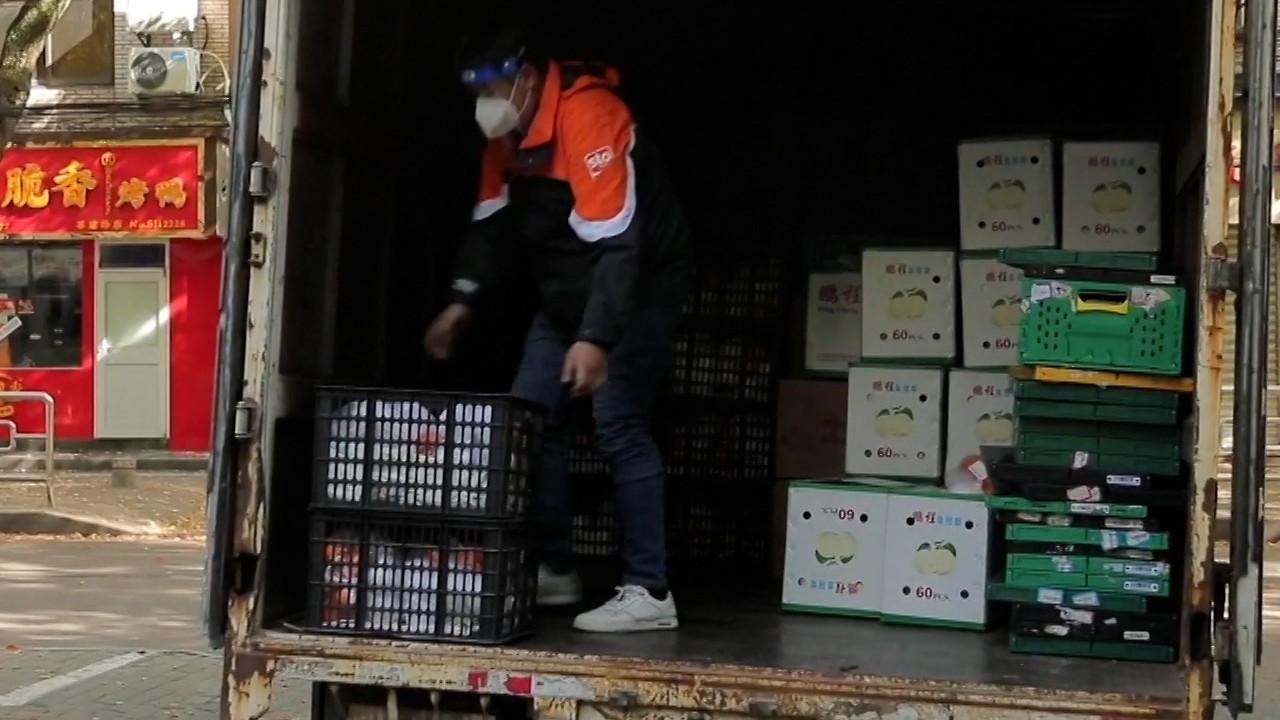
Coronavirus: Shanghai’s forgotten elderly rely on help from kind, younger neighbours. It’s a ‘tragedy’ they have to endure
- Shanghai’s hundreds of thousands of isolated elderly people have been hit hard by the city’s sudden lockdown and food and medicine shortages
- Methods of survival used by others like buying groups are not always available due to technological barriers such as not being able to use smartphones
The Yangs, 66 and 59, were caught off guard by the sudden outbreak of the epidemic and the ongoing closure controls: until April 4, the family’s supply of meat, eggs, and milk was cut off for days.
“I had a stroke, and the doctor told me that I needed to eat enough protein every day to keep my body functioning well,” Yang told the South China Morning Post.
Voices from the ground: Shanghai’s lockdown through the eyes of SCMP’s journalists
However, Yang and his wife had to change their diet from drinking a cup of milk every day to drinking it every other day on the third day after the lockdown, as they watched their food stock slowly decrease without knowing when the lockdown would be lifted.
“If the lockdown lasted a week to 10 days, we could still hang in there,” Yang said. “But it had been over 20 days, and we hadn’t had milk in days until April 4.”
Yang’s 28-year-old daughter, who had been caring for her grandmother, has been quarantined in another compound and is unable to visit them or bring supplies.
The old couple are unable to use smartphones – Yang’s myopia is more than 2000 degrees and his wife had surgery for retinal detachment – the only way for them to get supplies was to wait for the government to distribute food and other essentials, which don’t come often as the city’s logistics infrastructure is under immense strain.

Yang’s neighbour, Wang Haoyu, 27, who lived with his girlfriend, was the writer of the note.
After not receiving enough food from the government, the young couple became concerned about how the elderly people living in the building would cope with food shortages.
“Until April 2, 10 days after the lockdown,” Wang explained, “the neighbourhood committee had only organised people to buy ‘vegetable blind boxes’ for twice, two to three pounds of vegetables each.”
They then came up with a plan to help the elderly residents of their building in purchasing food. After counting, there were 10 households of elderly people living alone, and eight of them asked for help.
Wang and his girlfriend were able to obtain the food through the compound residents’ personal channels, despite the fact that the prices are sometimes several times higher than the market prices. And the Yangs gradually began to receive the milk, eggs, and meat they craved.
Inside the simmering rage of Shanghai’s locked down residents
“It’s not a warm and lovely story of neighbours helping neighbours or young people helping the elderly,” Wang said. “It’s a tragedy that the elders can only get food because I help them.”
The long road to medical care
Aside from food, medical resources are in short supply in Shanghai. Going to see a doctor has become nearly impossible under strict lockdown policies.
Yang expressed relief that he and his wife had just received a two-month supply of medicines prior to the lockdown in mid-March. However, more people have been caught in a bind due to a lack of medical resources for medical emergencies.
According to a shared file created by a group of college student volunteers called “Shanghai Medical Emergency Assistance,” 1,686 requests have been filed, including requests for help with chronic disease medication, regular chemotherapy, blood dialysis, and medicines for mental illnesses, with 1,083 of those requests still outstanding.
The majority of the patients who have made requests are elderly.
“We haven’t counted the number of people in different age groups, but at least more than half of those who seek help are over 60 years old,” said Xu Yixing, 18, a student volunteer who joined the group in early April.
Shanghai is one of China’s first cities to develop a large ageing population. According to the 2019 Shanghai Elderly Population and ageing Business Monitoring Statistics, Shanghai’s elderly population of 60 and over is approximately 5.815 million, suggesting that one in every three people is an elder. The number of elderly people living alone among them reached 317,400.

This group of people became one the most vulnerable ones during Shanghai’s indefinite lockdown because the majority of them suffer from chronic diseases and those caused by an ageing body.
Xu, who had previously accepted some first aid training, was given the job of determining whether a patient’s condition is life-threatening and assigning the patient to a doctor volunteer who could provide help tailored to his/her specific condition.
Xu stated that as a volunteer, he had heard far too many voices of helpless elderly people.
“It is not difficult for seniors with underlying illnesses to get their medications refilled, but it is difficult for those with more serious illnesses,” Xu said, recalling a time when he assisted a living alone elderly person with uremia, which is a build up of toxins in the blood.
According to Xu, their group received 30 government spots to transport patients on their list to hospitals for treatment. And one of the patients they chose was the elderly man with uremia.
Then, an arduous journey to the doctor began.
The volunteers had to contact hospitals to determine which ones were still capable of performing blood dialysis. After confirming the hospital, they had to contact the neighbourhood committee in order to obtain permission for the patient to leave his building and compound. After obtaining permission, they needed to locate a vehicle capable of transporting the elderly person to the hospital.
‘Shanghai epidemic fighting’ variety show postponed after backlash
“We first called the neighbourhood committee to see if they could assign him a car, then we contacted the street management office, which is above the committee, and finally we called the police,” Xu explained. “After receiving all ‘no’ responses, we ordered a ride-hailing cab to take him from Puxi to Pudong across the river.”
There is a problem here: Pudong and Puxi are two separate prevention and control areas, and cabs from one district cannot travel to the other. So the elder had to get out of the cab, show the permission and certificate to the police officer stationed at the river’s entrance, and order another Pudong cab to the hospital.
The journey hasn’t been completed yet. According to Xu, once the elder arrived at the hospital, he might only be able to complete a body check before returning another day for blood dialysis. If this is the case, the same procedure will be followed the other day.
Xu said that because the elder was not Covid-19 positive, they could assist him in obtaining permission to leave the building.
Helping positive patients is even more difficult because their movements are restricted and volunteers must contact more government departments to resolve their issues.
“I got a call at 11pm one night from a grandma who was sobbing and saying: ‘Please, please, please help me, this really hurts a lot,’” Xu recalled.
The elderly lady who was diagnosed positive and quarantined in a hotel while waiting to be transported to a concentrated quarantine location had severe gout with diseased bones.
“Because her conditions were not life-threatening, and our volunteers, who are not recognised by the government, do not have the resources to communicate with various government departments on her behalf; the only thing I could do was to give her the phone numbers of the quarantine facility and the street management office, and let her contact the officials on her own,” Xu explained.

“The current emergency clinics accept patients based on their seriousness grading; critically ill patients can be treated quickly, whereas seriously ill patients may have to wait at home,” Xu said. “I was astounded when I received a call from a pregnant woman telling me that she was only taken to the hospital after she started bleeding.”
Out of touch with society
Another major issue that the elderly face is social isolation. According to Xu, the problem is more severe in the working-class elderly population.
“Shanghai, like Hong Kong, has old-fashioned small-family buildings with more than 10 families living in a building,” Xu said. “The majority of the residents in such buildings are elderly, and there aren’t many volunteers to assist them, making it difficult for them to get attention.”
Wang Houhou, 29, who lives with her boyfriend surnamed Li in an old compound, said she has an over-80-year-old neighbour who had no idea what was going on outside for days and kept asking if the lockdown had been lifted.

“He has some hearing loss, lives alone in the flat next door, and doesn’t come out very often,” Wang said. “I only found out because of our building’s poor soundproofing, which allowed me to hear him watching TV at 3am and coughing all day.”
Wang recalled hearing him call his child, whom she later confirmed to be his son, prior to the lockdown and inviting him to live with him. However, the son never showed up, so Wang left a note on the elder’s door to let him know that she could come in handy if he needed it.
Following that, Wang began to receive calls from the elder, requesting help with everything from finding him a doctor to getting him antibiotics to buying him food, such as eggs, fruits, coconut milk, and even a can of carbonated drink.
“His opening line shifted from asking when the lockdown would be lifted to complaining about why the lockdown was still in place to now only asking when he should go downstairs for the PCR test,” Wang said.
After days of interacting with the elder, he knocked on Wang’s door and handed her a pack of traditional Chinese comic books with a note that said, “Hello Wang and Li, thank you for your recent care. I’ll pay you 500 yuan (US$78) now and then settle the rest later. You can come to me when you’re finished with the books to exchange them for new ones.”
Along with the note, there was 500 yuan in cash.





